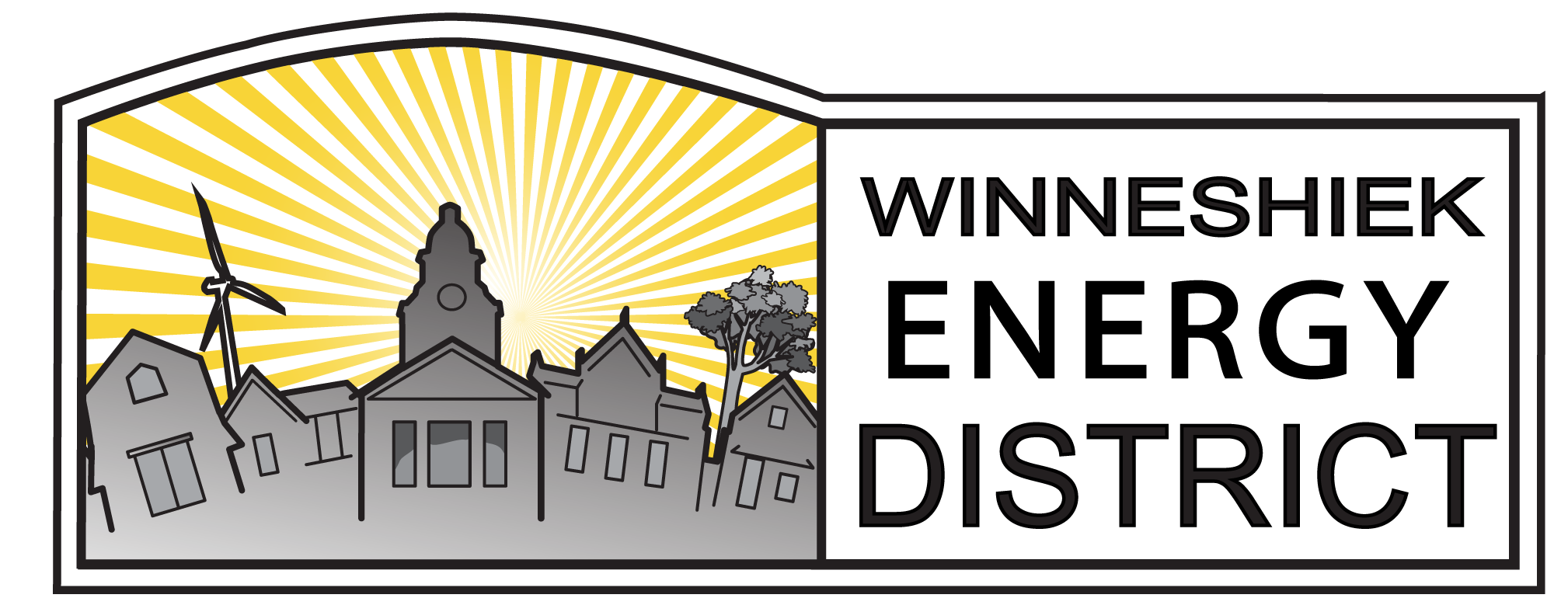Andy Johnson, Executive Director So reads the first Headline Statement from the most recent, definitive, and ominous IPCC report, Climate Change 2021: The Physical Science Basis. More: “Human-induced climate change is already affecting many weather and climate extremes in every region across the globe.” These include “heatwaves, heavy precipitation, droughts, and tropical cyclones”, the changes are accelerating, and “many changes due to past and future greenhouse gas emissions are irreversible for
Andy Johnson, Executive Director In July of this year, the Iowa Utilities Board opened a docket to investigate the development of a comprehensive plan for Iowa’s future transmission grid. In our August newsletter (and in comments submitted by the Clean Energy Districts of Iowa), we worried that the Board may be “unnecessarily feeding the fire … [of] growing headwinds in Iowa for renewable energy at all scales”. Many other parties in the docket expressed
Joel Zook, Energy Planner We’ve had a lot of people ask us for an update on any possible movement on clean energy at the federal level. It’s been a busy summer here at WED, and I have not dug into any of the details, trying to avoid the play-by-plays that the news can provide. Luckily, journalist Dave Roberts has been, and he is an excellent summarizer. See what is in the first
Andy Johnson, Executive Director In a pair of orders in 2020 (January pp97-106 and October) related to the 2019 Alliant rate increase, the Iowa Utilities Board directed Alliant to develop a stakeholder engagement plan that would “present accurate information to communities regarding anticipated rate increases”, and address “the Board’s concern over the lack of transparency and the inaccurate information provided with regard to the Decorah municipalization vote.” Alliant developed a plan that
From Giving Compass Part 4 of a multipart series about Clean Energy Districts. In this article, Jim Osterhaus, Chair of Clayton County Energy District, and Andy Johnson, WED Executive Director discuss the evolution, opportunities, and impact of the Clean Energy District movement in Iowa and the Upper Midwest. Read part 4 (and the earlier parts) here
Andy Johnson, Executive Director While it’s true that electric vehicles generally cost about half as much to drive in fuel compared to gasoline/diesel … We often get asked “are they really better for climate and the environment, given that fossil fuels still dominate electricity production, and batteries have a significant impact too?” The Union of Concerned Scientists has repeatedly demonstrated the lower fuel-related emissions of grid-powered EVs relative to gasoline
By Andy Johnson, Executive Director Electric vehicles (EVs) are the future, and the future is coming quickly to Northeast Iowa. Winneshiek Energy District and Upper Explorerland Regional Planning Commission have teamed up to lead a regional partnership that will accelerate the economic and environmental benefits from that transition. Additional partners include Northeast Iowa Community College, Northeast Iowa Resource Conservation and Development, and Luther College economist Steven Holland. Winneshiek Energy District
Piper Wood, Americorps Member Last Tuesday, the Winneshiek Energy District hosted Erik Hatlestad of CURE Minnesota to discuss the Rural Power Coalition and its goals to secure federal investment that will aid in the rural energy transition. Rural electric cooperatives serve 40 million Americans across the country, and these electric cooperatives are located in over 90% of federally recognized ‘persistent poverty’ counties, including many BIPOC (Black, Indidgenous, People of Color)
Andy Johnson, Executive Director This message was central to comments submitted by the Clean Energy Districts of Iowa in a new investigative docket on transmission opened by the Iowa Utilities Board, , INU-2021-0001. Unfortunately, we are seeing growing headwinds in Iowa for renewable energy at all scales. These include the Legislature’s failure to renew the Iowa solar energy tax credits was one example, an apparently fossil-fuel funded campaign to spread
By Joel Zook, Energy Planner, and Andy Johnson, Executive Director On June 1, 2021 Black Hill Energy filed a rate increase request with the Iowa Utilities Board. Black Hills serves approximately 4,300 customers in Winneshiek County, including most of Decorah, Calmar, Ossian and Ridgeway. Customers have likely already seen the impact of the interim rate increase on their bills, though much of the effect is hidden in non-heating months. Iowa
